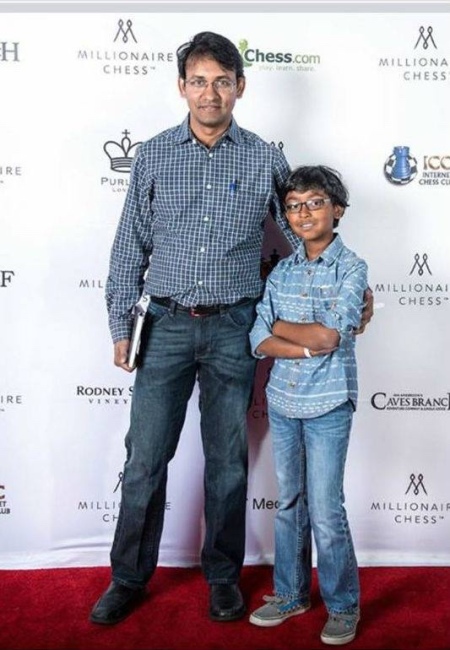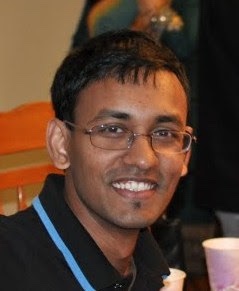In 27th May 2018 late afternoon in one of my regular visits to my friend Ashfaq's house, I found him with the book 12 Rules For Life: An Antidote To Chaos by Jordan B. Peterson. He mentioned that he recently ordered it from Amazon but after reading part of the forward he was thinking to return it unless I am interested to read it. My eyes just sparkled as I got some great references of books like Sapiens, Thinking Fast and Slow, The Three-Body Problem (trilogy) etc from him in the past. So he gifted me the book and I started reading it.
It's difficult to over estimate how much I liked the book and even more difficult to explain in how many dimensions I discovered a non-fiction book can enrich your thoughts. The book talks about 12 life lessons that you can follow to make the best of your existence. The lesson titles are given below and the titles don't represent properly what he actually means when you read the chapters in detail.
- Stand up straight with your shoulders back
- Treat yourself like someone you are responsible for helping
- Make friends with people who want the best for you
- Compare yourself to who you were yesterday, not to who someone else is today
- Do not let your children do anything that makes you dislike them
- Set your house in perfect order before you criticize the world
- Pursue what is meaningful (not what is expedient)
- Tell the truth – or, at least, don't lie
- Assume that the person you are listening to might know something you don't
- Be precise in your speech
- Do not bother children when they are skateboarding
- Pet a cat when you encounter one on the street
It's a hard book to read. Very hard. Apart from its size, its written in a way that before pitching the central idea for each rule, Jordan dances around the contexts of why its relevant. I have spent lots of time between each chapter so that the lesson sinks in me and I can think about it before starting the next one. And unlike most other books now-a-days that I listen in audible, this one I read word by word. And not only I read, I listened to most of the youtube lectures Jordan has given. When he came in December 2018 in San Francisco, I attended it personally with all enthusiasm.
Jordan is one of the most popular figures in social media in recent years. He has been giving talk on this book for a year now all around the world. He is controversial sometimes, but more often bold and passionate about what he preaches. He is not a comedian or entertainer, yet I listen to him for his eloquence in speech. He comes up with different points to talk about every time he stands, very little repetition.
When reading the book, many sentences I re-read again and again for how he organized the words within sentences. Its as if you put the words a bit differently, the whole meaning and force behind his speech will be lost. Many of the sentences can be treated as great quotes. If you take out religious scriptures, this book has the highest number of quotes that will qualify as great quotes in my opinion.
So I read it slowly in parallel to many other books I read or listened to. Finally I finished it last week on my way back to San Francisco from Austin in the weekend trip. I am sad that the book is finished and I will read it again - this time probably listening to audible. It will remain one of the best books I have ever read.
Here are some sample quotes from the book (not exhaustive at all) -
“When you have something to say, silence is a lie.”
“Intolerance of others’ views (no matter how ignorant or incoherent they may be) is not simply wrong; in a world where there is no right or wrong, it is worse: it is a sign you are embarrassingly unsophisticated or, possibly, dangerous.”
“You can only find out what you actually believe (rather than what you think you believe) by watching how you act. You simply don’t know what you believe, before that. You are too complex to understand yourself.”
“It took untold generations to get you where you are. A little gratitude might be in order. If you're going to insist on bending the world to your way, you better have your reasons.”
“To stand up straight with your shoulders back is to accept the terrible responsibility of life, with eyes wide open. It means deciding to voluntarily transform the chaos of potential into the realities of habitable order. It means adopting the burden of self-conscious vulnerability, and accepting the end of the unconscious paradise of childhood, where finitude and mortality are only dimly comprehended. It means willingly undertaking the sacrifices necessary to generate a productive and meaningful reality (it means acting to please God, in the ancient language).”
“So, attend carefully to your posture. Quit drooping and hunching around. Speak your mind. Put your desires forward, as if you had a right to them—at least the same right as others. Walk tall and gaze forthrightly ahead. Dare to be dangerous.”
“Perhaps you are overvaluing what you don’t have and undervaluing what you do.”
“Don’t underestimate the power of vision and direction. These are irresistible forces, able to transform what might appear to be unconquerable obstacles into traversable pathways and expanding opportunities. Strengthen the individual. Start with yourself. Take care with yourself. Define who you are. Refine your personality. Choose your destination and articulate your Being. As the great nineteenth-century German philosopher Friedrich Nietzsche so brilliantly noted, “He whose life has a why can bear almost any how.”
“In the West, we have been withdrawing from our tradition-, religion- and even nation-centred cultures, partly to decrease the danger of group conflict. But we are increasingly falling prey to the desperation of meaninglessness, and that is no improvement at all.”
“Ideologies are substitutes for true knowledge, and ideologues are always dangerous when they come to power, because a simple-minded I-know-it-all approach is no match for the complexity of existence.”
“You must determine where you are going in your life, because you cannot get there unless you move in that direction. Random wandering will not move you forward. It will instead disappoint and frustrate you and make you anxious and unhappy and hard to get along with (and then resentful, and then vengeful, and then worse).”
“And if you think tough men are dangerous, wait until you see what weak men are capable of.”
“if you cannot understand why someone did something, look at the consequences—and infer the motivation.”










